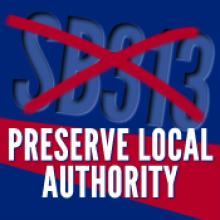Community Broadband Bits 7 - Mary Beth Henry of Portland, Oregon

For the 7th Community Broadband Bits podcast, we talk with Mary Beth Henry from Portland, Oregon. Mary Beth is the Director of the Portland Office for Community Technology and Mt Hood Cable Regulatory Commission, as well as a past president of NATOA.
Our discussion covers the long struggle to ensure local businesses and residents had a real choice in broadband providers in Portland. We start with how the famous "Brand X" Supreme Court decision came into being. But after Portland lost that case (indeed, after all of America lost due to that decision) it continued to push for smart telecommunications policies to benefit the community.
Now Portland has its own network serving public entities (IRNE - the Integrated Regional Network Enterprise) and the public is discussing what it can do to get beyond the CenturyLink and Comcast duopoly. Below, we have embedded videos that Portland produced as part or Portland's Broadband Strategic Plan. You can find more documents and information about Portland's approach here.
We want your feedback and suggestions for the show - please e-mail us or leave a comment below. Also, feel free to suggest other guests, topics, or questions you want us to address.
This show is 18 minutes long and can be played below on this page or subscribe via iTunes or via the tool of your choice using this feed. Search for us in iTunes and leave a positive comment!
Listen to previous episodes here. You can download the Mp3 directly from here.
Read the transcript of this episode here.
Find more episodes in our podcast index.
Thanks to Fit and the Conniptions for the music, licensed using Creative Commons.


